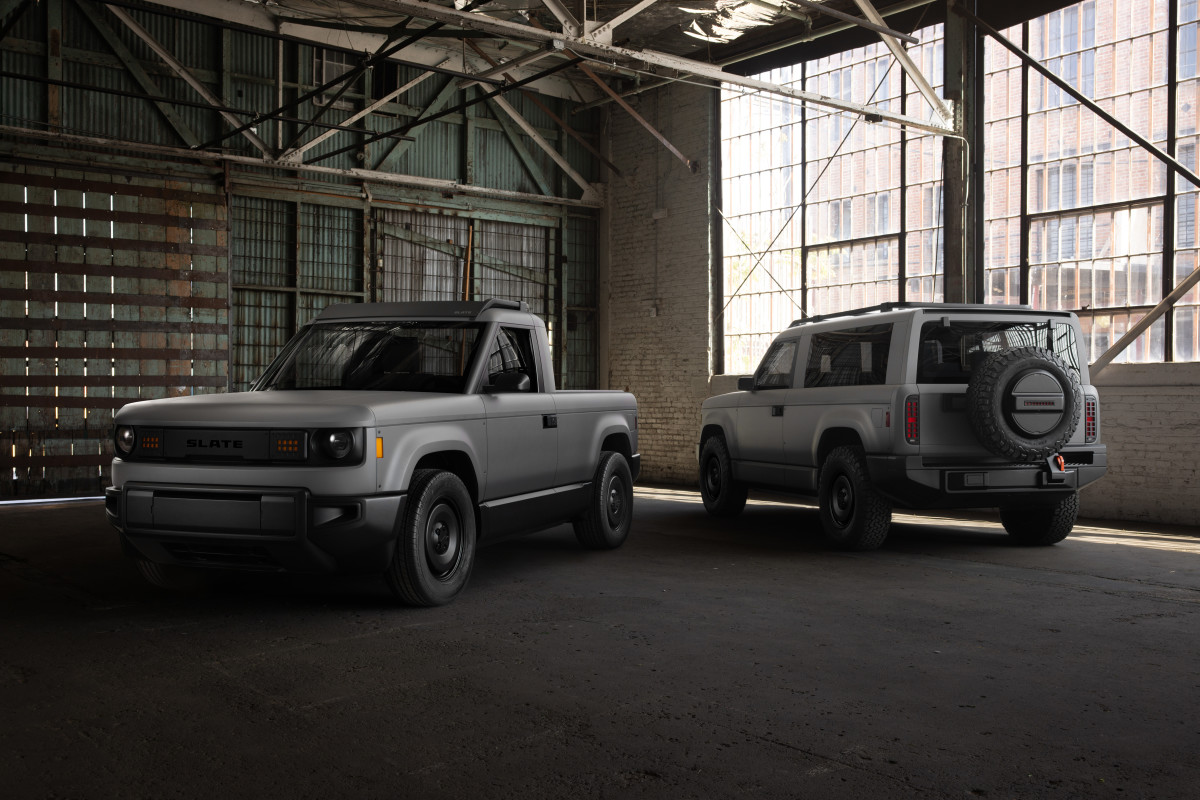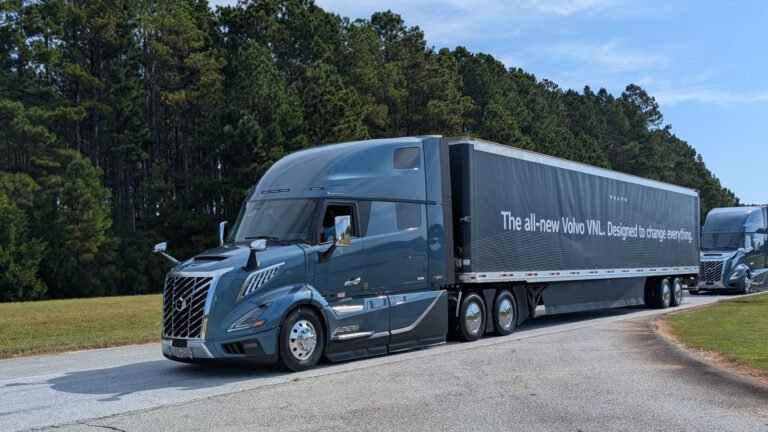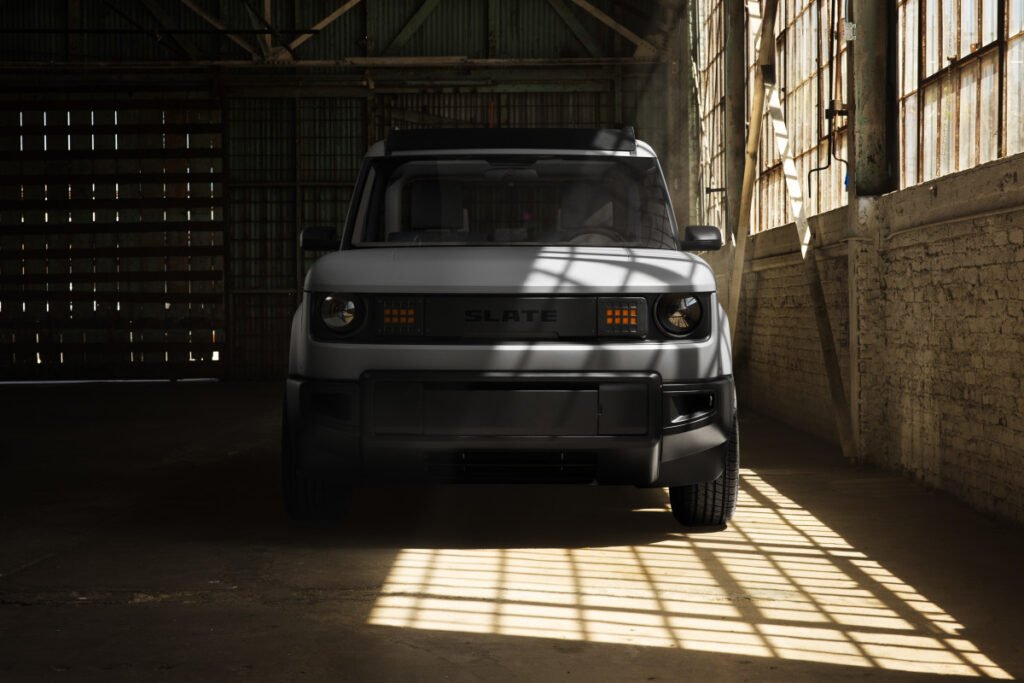
Slate, the plucky American startup promising a pint-sized electric pickup for the people, has decided it’s far too clever to muck about with service centers. Why build shiny temples of EV repair when there’s already a nation full of grease-stained legends with socket wrenches and strong opinions about carb cleaner?
Instead of rolling out the Tesla playbook, Slate is handing its baby over to RepairPal’s army of 4,000-plus certified independent shops. Yes, the company that plans to sell you a minimalist, two-door truck with roll-up windows also plans for you to take it to Bob’s Auto & Muffler for its check-ups. We’re not saying Slate is trying to bring back 1998, but if someone starts hawking cassette adapters again, don’t be shocked.
Slate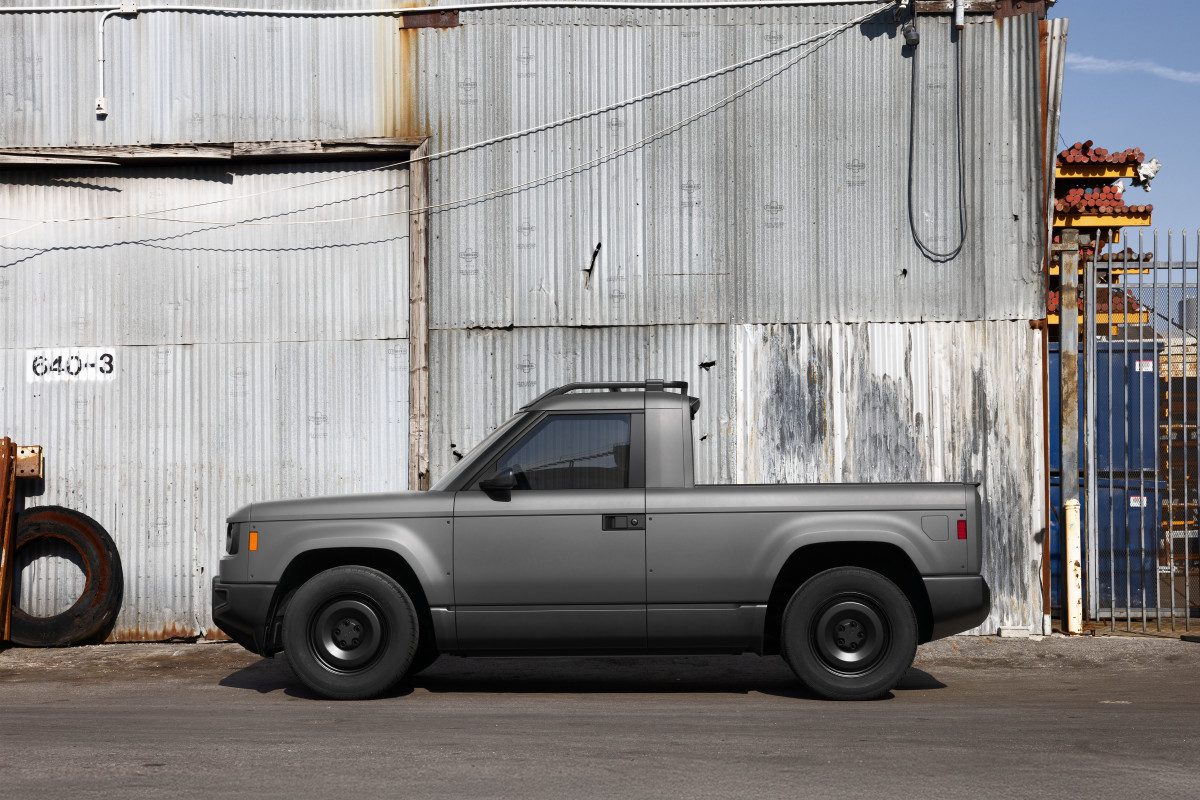
The Anti-Tesla Play
Tesla poured billions into its service network and still has owners rage-posting about exorbitant prices, locked parts, and six-week wait times. Rivian? Also sweating like a marathon runner in a sauna, trying to scale support for its loyal legion of outdoorsy superfans.
Slate, staffed by alumni from both camps, has watched this circus before. Their bright idea: lean on existing shops, keep the capital, avoid the migraine. Jeremy Snyder, Slate’s chief commercial chap, basically said, “Building a service network is a giant pain and we’d rather not, thanks.”
Slate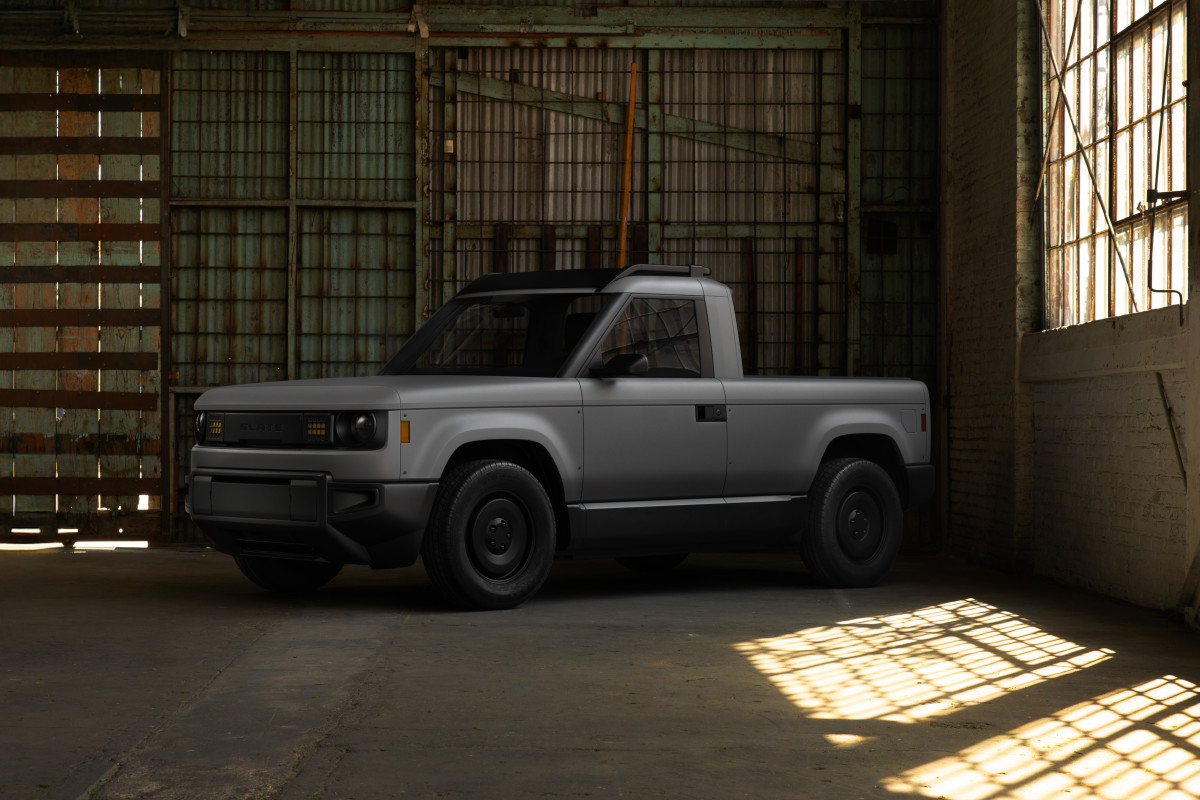
There’s an App for That
Cue RepairPal, the Yelp-owned certifier of independent shops. Not a dealership network. Not a fancy EV repair empire. A curated list of garages judged on tools, training, and whether customers leave happy rather than shouting into the void. Slate says pricing will be consistent across locations, and the booking experience will be all modern and digital. Think less clip-boards and sighing, more apps and smug efficiency.
Just don’t expect every shop to handle warranty work. Some things still require a bit of corporate love, even in Slate-land.
Slate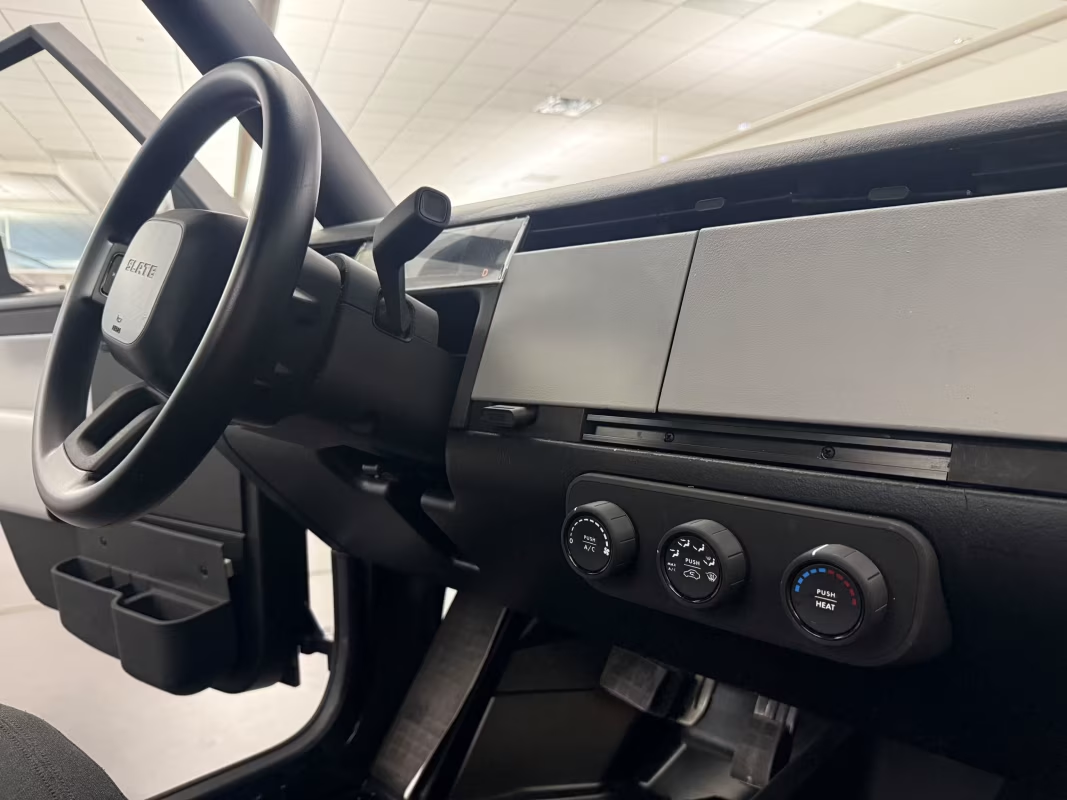
Build the Truck, Not the Kingdom
While rivals build glitzy infrastructure, Slate is playing the scrappy-startup card. The logic is pure Top Gear pub-chat genius: why build hundreds of service palaces when Toyota already proved letting someone else do the fiddly bits works just fine?
Ford and co build cars, dealers fix them, everyone goes home happy. Meanwhile, Tesla tried to reinvent the wheel and got buried under a mountain of mobile technicians and impatient customers.
Big Dreams For a Tiny Truck
Slate’s version? Make the trucks, sell them direct, let trusted locals keep them running. It’s both radically modern and charmingly old-school, like fitting a Bluetooth speaker in a Defender and pretending it’s progress.
Slate plans to churn out 150,000 of these budget-friendly, roll-up-window wonder-utes every year once its Indiana plant is humming around 2027. Price target? Mid-$20Ks. Accessories? Wild modular kits, including one that turns your mini pickup into a tiny SUV. Your inner child, who once put LEGO roofs on everything, is quietly clapping.
Slate
Will This Mad Scheme Work?
Maybe Slate has cracked the startup code: use what already exists, avoid building expensive things, let mechanics do mechanic stuff. Or maybe they’ll learn why carmakers usually bite the bullet and build their own service network.
Either way, give them credit: when every EV company is trying to reinvent the world, Slate just said, “Couldn’t we simply take it to the shop down the road?”
Revolutionary? Lazy? Sensible? All three. And in the electric truck space, that might just be the secret sauce.The Slate is also designed to be minimal inside and out, so repairs promise to be less complicated than the rest.
Slate Auto